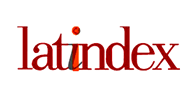A IMPORTÂNCIA DO COMPLIANCE PARA PREVENÇÃO AO CRIME DE LAVAGEM DE BENS, DIREITOS E VALORES
Keywords:
money laudering, compliance, comparative law, internal control, criminal lawAbstract
This article briefly discusses the crime of money laundering and the importance of the compliance institute for the prevention and repression of the crime in question. To this end, a brief historical introduction to the crime of money laundering was carried out, mentioning the way in which the first legislation dealt with the subject, as well as the evolution of the criminal practices of the aforementioned crime. It also analyzes the way in which Brazilian law dealt with the crime, since the first provision in domestic law, as well as the successive subsequent legislative revisions, which culminated in the current criminal law and in the specific form of provision for criminally relevant conduct. Then, we analyze the internal control institute to be adopted by private entities through the compliance institute, making considerations about the way external law deals with the subject and the related figures created from such legal innovations. In a different topic, an attempt was made to discuss the specific analysis of the internal legislative provision regarding the institute and what is the form of implementation to try to encourage the creation of internal control programs within the scope of private corporations. Subsequently, interconnecting the two institutes, we investigated the way in which compliance programs implemented by private companies can assist in controlling and combating the crime of money laundering. In conclusion, the debate on innovative themes is encouraged, leaving open the possibility of further considerations on the themes analyzed here.
References
ARAÚJO E SILVA, Lívia Cristina. Lei de Lavagem de Capitais e as Principais Alterações Promovidas Pela Lei Nº 12.683/12. Cadernos do Ministério Público do Estado do Ceará. Disponível em:
http://www.mpsp.mp.br/portal/page/portal/documentacao_e_divulgacao/doc_biblioteca/bibli_servicos_produtos/bibli_informativo/bibli_inf_2006/Cad-MP-CE_v.01_n.01_t.02.03.pdf <Acesso em 15/04/2020>
BALTAZAR JUNIOR, José Paulo. Crimes Federais. 11. ed. São Paulo: Saraiva, 2017.
BLOK, MARCELLA. A Nova Lei Anticorrupção e o Compliance. Revista de Direito Bancário e do Mercado de Capitais | vol. 65/2014 | p. 263 | Jul / 2014 DTR\2014\15162. Link: https://emd-public.nyc3.digitaloceanspaces.com/eusouempreendedor-uploads/RT-Marcella-Blok-Nova-lei-anticorrup%C3%A7%C3%A3o-e-compliance-.pdf <Acesso em 20.06.2020>
CALLEGARI, André Luís; WEBER, Ariel Barazzetti. Lavagem de Dinheiro. 2 ed. São Paulo: Atlas, 2017.
PENTEADO, Camila Witchmichen Penteado. Reflexões sobre o bem jurídico tutelado no delito de lavagem de capitais. Revista de Doutrina da 4ª Região, Porto Alegre, n. 39, dez. 2010. Disponível em: https://revistadoutrina.trf4.jus.br/artigos/edicao039/camila_penteado.html
<Acesso em: 01 jul. 2020>.
SAAVEDRA, Giovani Agostini. Compliance na Nova Lei de Lavagem de Dinheiro. Revista Síntese, Direito Penal e Processual Penal – Ano XIII, nº 75, Ago-Set 2012 – fls. 22-30.
SANCTIS, Fausto Martins de. Crime Organizado e Lavagem de Dinheiro. 2. ed. São Paulo: SARAIVA, 2015.
SILVEIRA, R. D. M. J.; DINIZ, E. S. -. Compliance, Direito Penal e Lei Anticorrupção. São Paulo: SARAIVA, 2015.
VERÍSSIMO, Carla. Compliance: incentivo à adoção de medidas anticorrupção. São Paulo: SARAIVA, 2018.
Downloads
Published
How to Cite
Issue
Section
License
Authors who publish in this Journal agree to the following terms:
- Authors retain copyright and grant the Journal of Constitutional Research the right of first publication with the article simultaneously licensed under the Creative Commons - Attribution 4.0 International which allows sharing the work with recognition of the authors and its initial publication in this Journal.
- Authors are able to take on additional contracts separately, for non-exclusive distribution of the version of the paper published in this Journal (eg.: publishing in institutional repository or as a book), with a recognition of its initial publication in this Journal.
- Authors are allowed and encouraged to publish their work online (eg.: in institutional repositories or on their personal website) at any point before or during the submission process, as it can lead to productive exchanges, as well as increase the impact and the citation of the published work (see the Effect of Open Access).


















